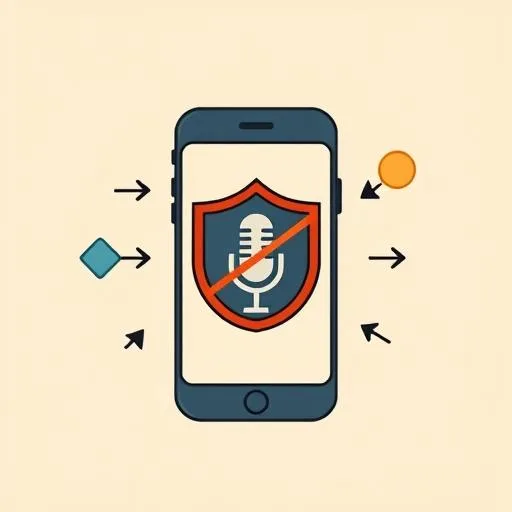
That Creepy Ad? It’s Not Listening—It’s Predicting.
Ever chatted about something random, only to see an ad pop up minutes later? I’ve been there too, scratching my head while my daughter doodles nearby. But here’s the twist: your phone isn’t secretly recording your conversations. The reality? It’s weaving a digital tapestry from countless data points—and that’s both fascinating and a little spine-tingling for us parents.
Is Your Phone Really Eavesdropping on You?

Picture this: you’re out with friends, laughing about something niche like toucan bird feeders, and bam—an ad for exactly that flashes on your screen. Spooky, right? But researchers have dug deep, like that 2018 Northeastern University study, and found zero evidence of phones listening in. Instead, they caught sneaky stuff like screen recordings or uploads to third parties. Not a hot mic, but still… makes you wanna double-check those app permissions! When it comes to data tracking, it’s clear: your phone isn’t listening, but it’s always learning.
How Do Algorithms Really ‘Know’ You?

Here’s the mind-blowing part: your phone doesn’t need to eavesdrop because it’s already swimming in data. Think location history, search queries, even who you’re connected to online. If your buddy googles ‘robot lawnmowers,’ algorithms might link you two and serve you the same ad—no whispers required! It’s like having a super-smart assistant that predicts your next move before you even think it. For our kids, this means their digital footprints start early, shaping what they see and learn. Yep, these algorithms are shockingly good at knowing what you’ll want next.
Why Digital Privacy Matters for Families

As parents, it’s natural to worry about screens and privacy. My daughter loves creating digital art, and I marvel at how tech sparks her curiosity—but I also pause at how much data might be swirling around her. That curiosity led to one of those everyday chats—sitting on the couch, I pointed out an ad and said, ‘Huh, how’d they know that?’ And with wide eyes, she said, ‘Are the computers watching us?’ It opened the door to explaining data tracking gently, not scary—just simple truths we can explore together. Studies show personalized ads can feel invasive, yet they’re part of our digital landscape. The key? Balancing tech’s wonders with wisdom. Why not turn ad sightings into teachable moments? ‘Hey, wonder why we saw that toy ad?’ could lead to a chat about online choices and data tracking.
Practical Tips for Tech-Savvy Family Safety

So what does this mean for families? First, review app permissions together—make it a game! ‘Let’s see which apps really need our microphone.’ Second, embrace curiosity: encourage kids to question why ads appear, fostering critical thinking. And third, blend screen time with real-world play. A trip to the local bakery or making kimchi together (yes, we’ve tried—it’s messy but magical!) can remind them life’s biggest adventures happen offline. Small steps, but they add up to raising resilient, aware kiddos. These mindful tech use habits can protect your family’s digital privacy.
Food for Thought: What Kind of Digital World Do We Want?
Here’s a question that lingers for me: if algorithms can predict our desires, how do we ensure they also nurture kindness and community? It’s not about fearing tech, but shaping it with values like empathy and trust. I dream of tech that boosts her imagination without shadowing her freedom. As we watch them grow, let’s champion digital literacy that empowers, not overwhelms. Because in the end, it’s not about shutting out technology, but lighting the way for them to use it wisely. What digital world will we leave for them?
Source: No, Your iPhone Isn’t Listening to You. But the Truth Is Even Worse, CNET, 2025/09/07
